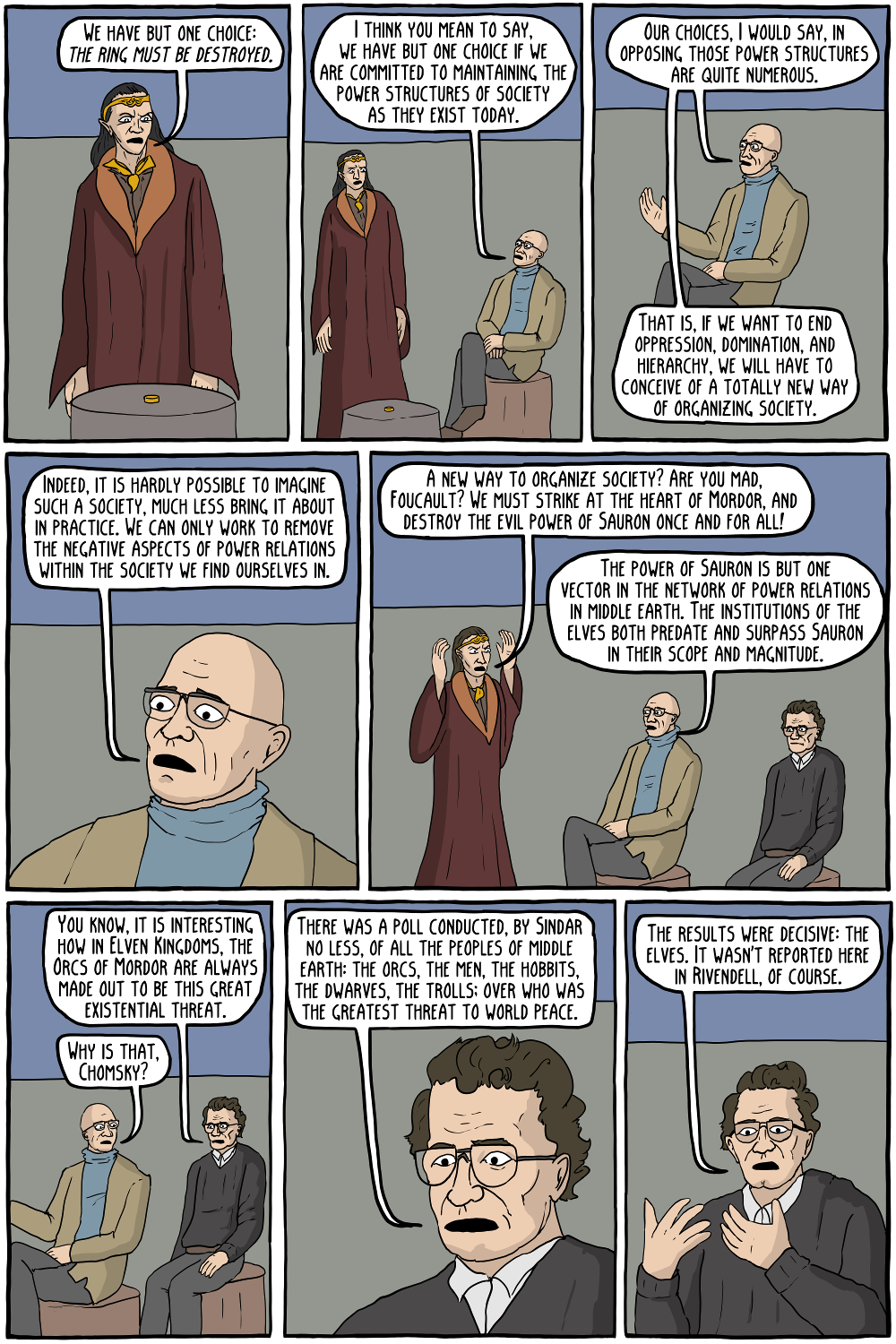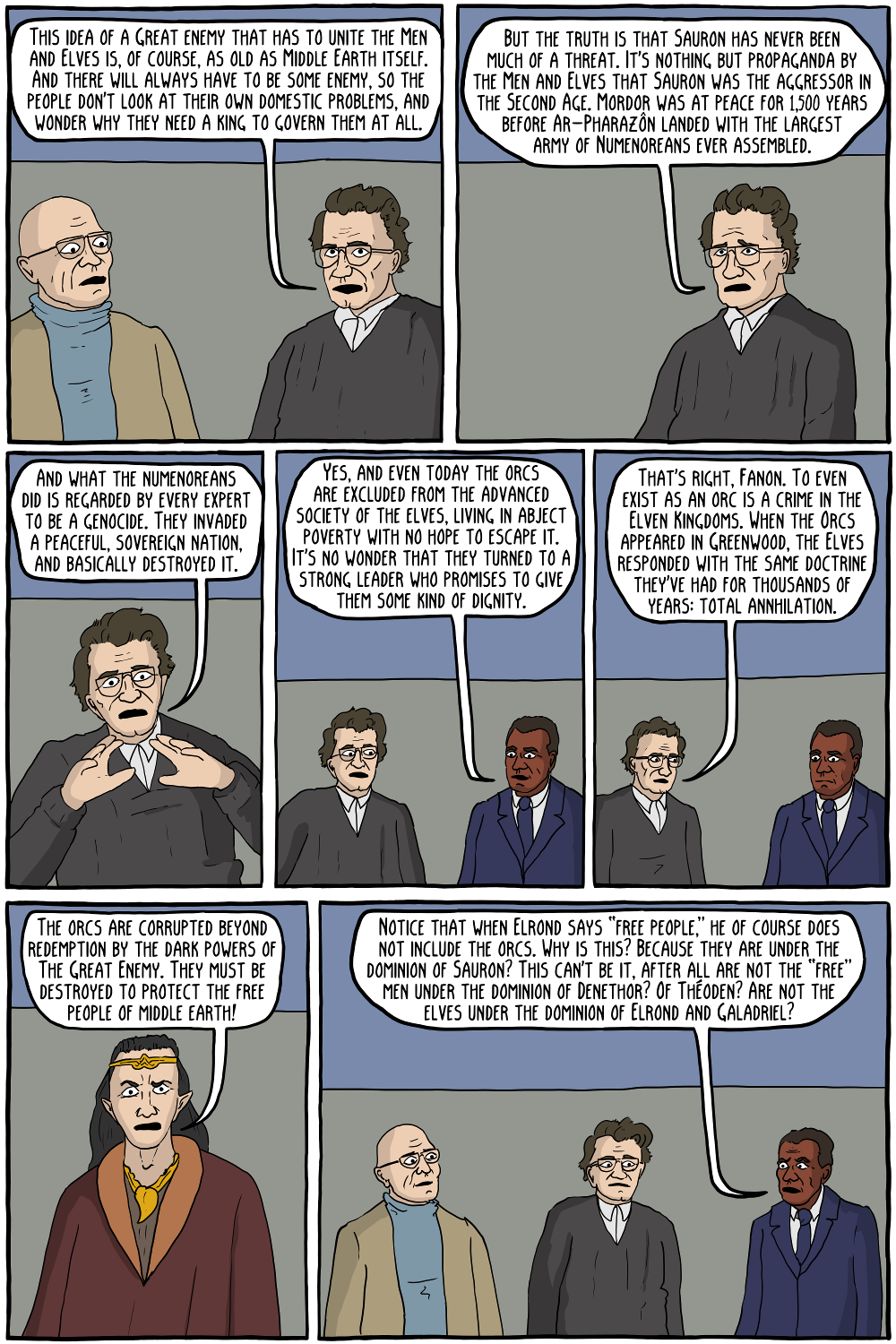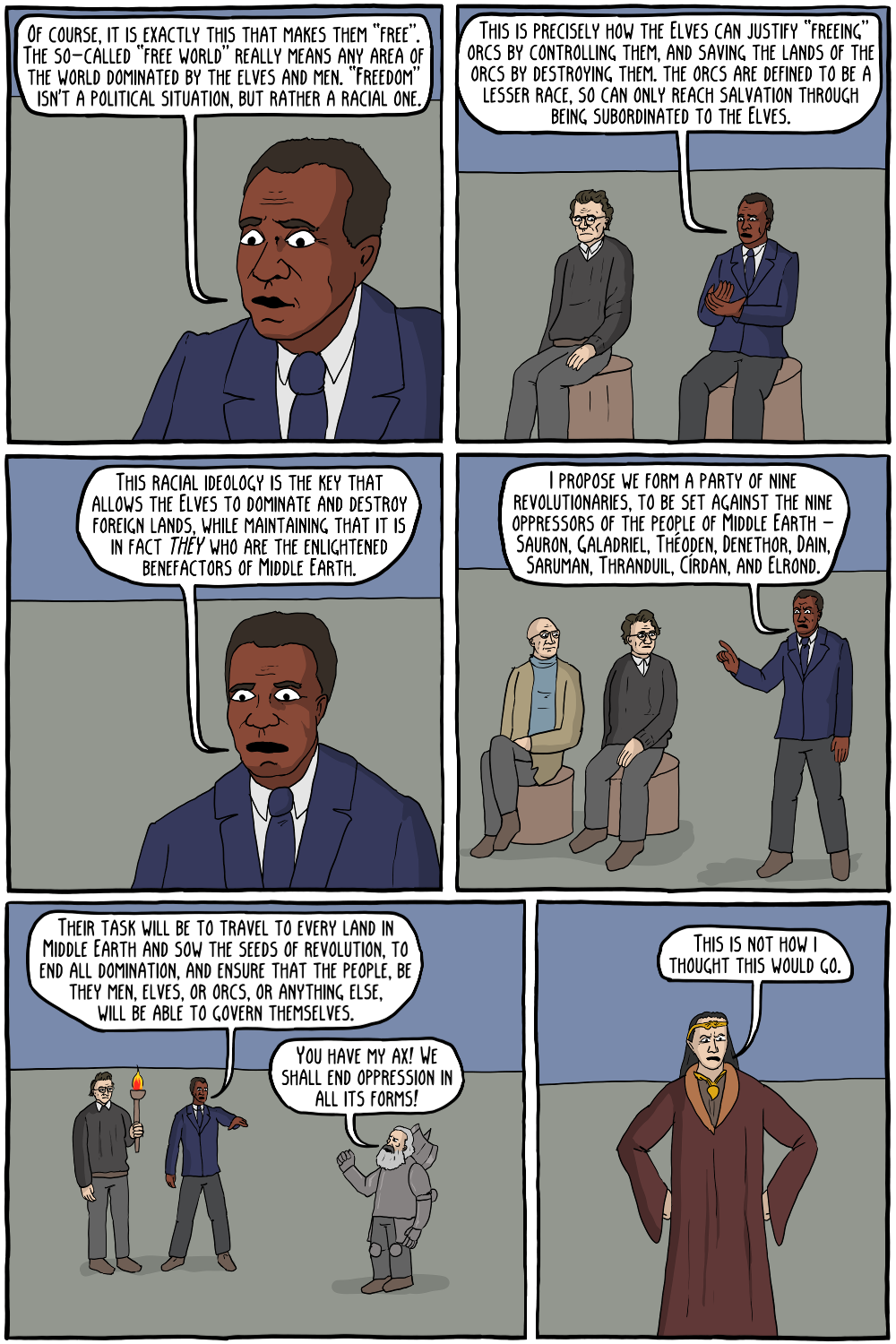Slothrop
Tight but Polite
I think that both SF and fantasy have traditionally had fairly naive political structures as default 'good' societies that either need preserving or re-establishing - the good monarchy in fantasy and the benevolent technocracy / good empire / large scale republic in SF. But while SF started to undermine and question this sort of stuff at an early stage, and investigating possible good / bad social structures became a key part of SF, in fantasy, afaict, it remained very much in the background. Which is why Mieville seems radical by comparison - he's got something that's nominally a democracy but isn't actually very nice and he doesn't offer an easy alternative.That seems like quite an idealised vision of the two genres. There are reactionary currents in sci-fi as well. For instance, "dystopia". Sci-fi is often very pessimistic about progress, which is the reactionary party line in its very essence.
But there is something to the idea that fantasy is reactionary, I think, because there is this whiff of glorification of monarchy to fantasy.
Yes, Tolkein mostly ust seems, as Tea said, small c conservative, a rural traditionalist. So he's into the environment (good), opposed to becoming cogs in the industrial machine (generally good) or trying to dominate others(good), not up for an archo-syndicalist revolution (bad) and a bit suspicious of strange foreign stuff (bad).I certainly agree that Tolkien was a reactionary. You're spot on about conservative catholicism, IMO (also, Mr Tea above). His instincts were obviously not infallible, but not worse than many others in a century where there were a lot of bastards with widespread support.
I also agree that there's a lot of race in Tolkein. But I don't consider that racism per se. The light versus darkness thing is a bit of a stretch though. Whatever else you can accuse Tolkein of, I think that metaphor preceded him by more than a few years.
Last edited:



